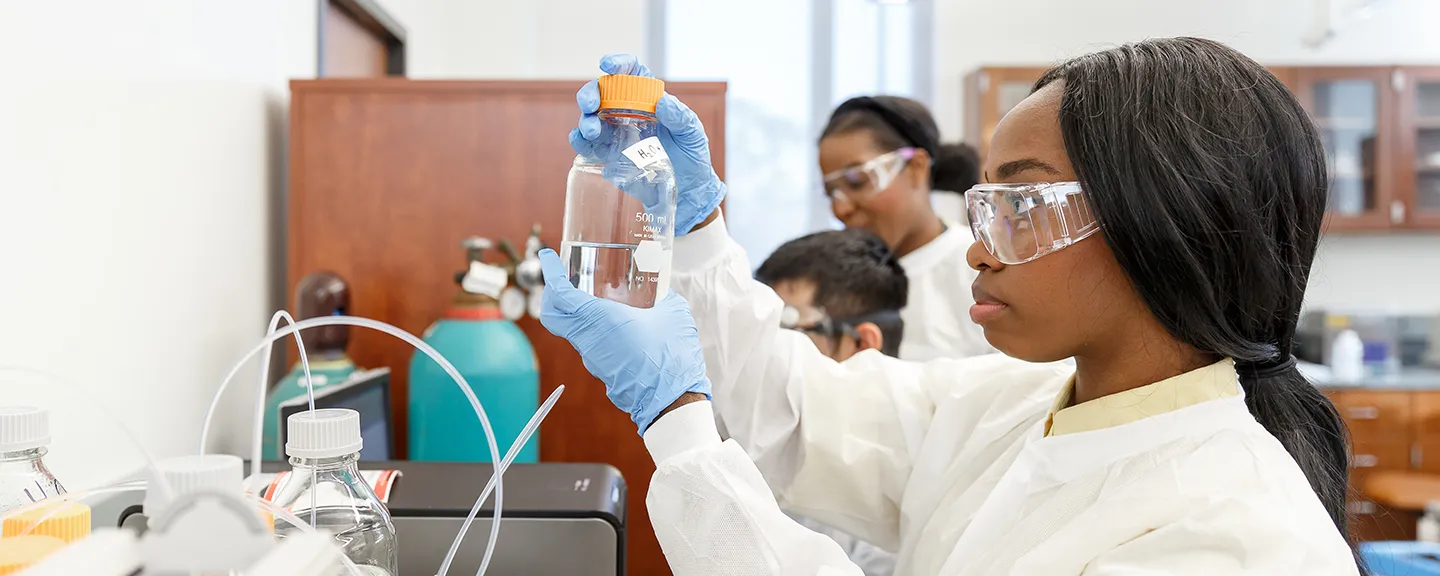- Home
- >
- APU Articles
- >
- News Article
How Grants for College Students Can Support Your University Experience
January 14, 2021 | Written By Ashley Eneriz

When you attend a university that provides or facilitates research grants for college students, your learning extends beyond lectures in a classroom. You get to earn your degree while growing as an influential member in your field and getting hands-on experience with the latest research and teaching.
Here’s what you should know about the grants that are available to college students—and the opportunities you may want to pursue.
University Grants Contribute to Student Learning Experiences
Companies, industries, and organizations depend on academic research to advance knowledge and practice. With so much research being conducted at colleges and universities, students stand to benefit considerably. Through their coursework and elective studies, students can experience the research process and develop essential critical thinking skills before they graduate.
“Academic research and scholarship is important for advancing new ideas and providing creative solutions to myriad issues, locally and globally, within our society,” said Jennifer Young, PhD, interim chair and associate professor in the Department of Biology and Chemistry at Azusa Pacific University.
Young explained that pursuing grants provides the university with the funds it needs to implement research projects, purchase specialized equipment, and have findings published in peer-reviewed journals. These benefits are shared with students and faculty alike.
“Specifically for students, grants can provide opportunities for research that they might not have otherwise,” said Young. “If the grant money comes in the form of a stipend, students are able to participate in a research project and have some financial burden removed from them during this time.” The financial incentive of a grant can enable students to concentrate on the research project and their studies while minimizing the need for outside work.
Recently, APU’s Department of Biology and Chemistry received a grant funded by the VWR Charitable Foundation. Young noted that the grant allowed the department to pay several underrepresented minority students an hourly wage for their summer research work in APU’s Student-To-Scholar research program.
Grants Give Students a Competitive Edge after Graduation
When a university receives a grant for research, everyone involved benefits. Faculty members stay current in their fields and often advance learning through new discoveries. Meanwhile, students (both undergraduate and graduate) gain hands-on experience by assisting faculty. And finally, new research can bring additional recognition to the university, which opens up even more doors for all.
“When students or former students are able to work on federally funded research projects, it sets them up to be competitive for acceptance into highly ranked graduate programs,” said Kathryn Ecklund, PhD, chair and professor in the Department of Psychology at APU. “These students become more excited about learning, research, and practice when all the parts of the process are experienced directly.”
In a similar vein, Young noted that students who gain research experience in college are often more successful in continuing on in higher education to receive master’s or doctoral degrees. Additionally, she said they’re typically more successful in obtaining a job in their field.
Grants for College Students Lead to New Opportunities
Research grants also extend access and opportunities for students and faculty.
For instance, Ecklund noted that a big reason APU is able to offer a minor in substance use counseling is because of Rachel Castaneda, PhD, a professor and frequent recipient of research grants in the area of substance use treatment and intervention. Such grants bring federal best-practice information into the classroom, where students are then taught to meet the workforce needs of the 21st century.
“Had [Castaneda] not been a member of our faculty, running her active and prolific research lab, we might not have observed the need for—and student interest in—substance use counseling certification options for undergraduate students,” she said. “We are also working on a SAMHSA-supported substance use educational training grant in which an online learning management system of modules trains students in a variety of mental health and substance use concerns.”
In any field of research, networking is key for college undergraduates and graduate students alike. You never know when you’ll meet the person who will help you take the next step toward securing your dream position after graduation.
Young explained that the strong faculty-student connections that are formed through research projects are long-lasting. “Often this type of mentorship results in faculty support and encouragement long after the student has graduated from college, which is a great benefit as the student embarks on achieving their career goals,” she said.
Don’t just pursue a degree—pursue your passion to the fullest. Explore the opportunities offered by the Office of Research and Grants at Azusa Pacific University to learn more about how APU helps enrich the lives of students and faculty.